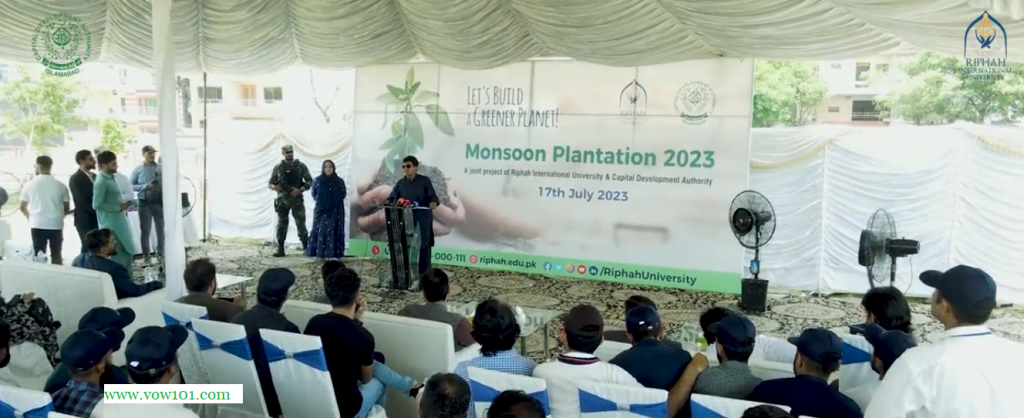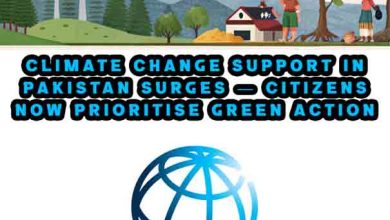#GreenCooperation, RIU, CDA Jointly Plant 1000 Saplings for Greener Pakistan
Riphah International University contributes 1,000 trees for green Islamabad
Riphah International University contributes 1,000 trees for green Islamabad
Islamabad: To promote environmental sustainability in the capital city, Riphah International University and the Capital Development Authority (CDA) organized a Tree Plantation event on Monday at Islamabad Chowk, opposite G-13 Srinagar Highway.
For the green Islamabad campaign, Riphah International University (RIU) generously contributed 1,000 trees to promote a cleaner and greener Pakistan.
This collaboration between CDA, a civic body of capital city of Pakistan and Riphah International University, one of the leading higher educational intuition, highlights their shared commitment to the clean and green environment.
The tree plantation event was graced by the presence of Captain (R) Noor ul Amin Mengal, the Chairman CDA and Chief Commissioner Islamabad, as the chief guest, and Captain (r) Anwar ul Haq, member Environment as the guest of honor and Chancellor Riphah International University Hassan Muhammad Khan.

While highlighting the importance of tree plantation towards green Pakistan, Chancellor Riphah International University said tree plantation is vital to save the natural beauty of capital; mitigate climate crisis; and promote sustainable environment in Islamabad, the beautiful capital of Pakistan.
He also drew attention to the ongoing initiatives undertaken by Riphah International University that included the beautification of H-8 and G-8 roundabouts, as well as various art projects aimed at raising awareness about climate change and promoting the significance of a sustainable environment.
Additionally, the Chairman of the Capital Development Authority (CDA) addressed the audience and provided updates on the current projects being carried out by the CDA.
By: M.A
Email: VOW2025@Gmail.com







